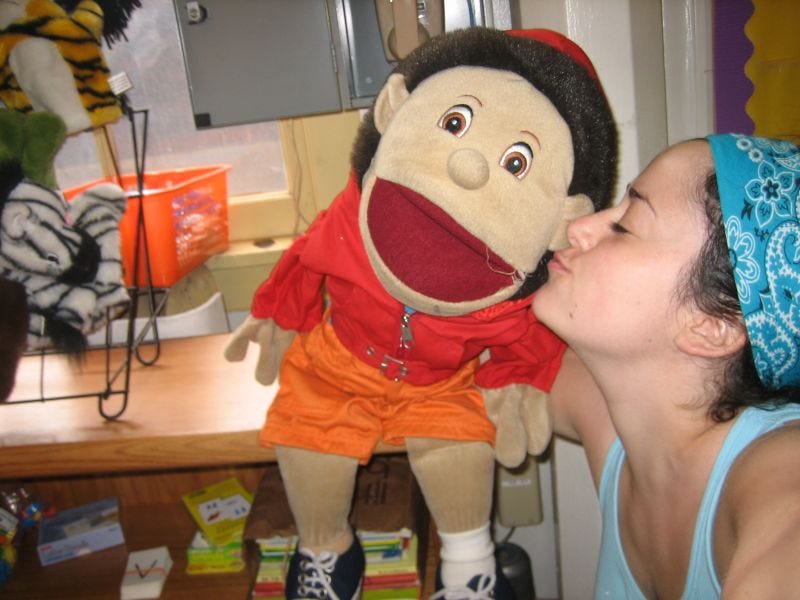eSports, Video Gaming and Motivation, & Education | Chris Aviles and Andrew Abramson
eSports leader, Chris Aviles, and recognized athelete, Andrew Abramson join this week's episode
🎙️ This Week on the Podcast: Chris Aviles and Andrew Abramson
Episode Title: The Rise of eSports
I have a love-hate relationship with video games in our home but this episode with Chris Aviles and Andrew Abramson changed my tune on gaming.
In the latest episode of The Learning Can't Wait podcast, we dive into the intersection of esports and education with Chris Aviles, product evangelist for Game Plan and President of Garden State Esports, and Andrew Abramson, an 8th-grade esports enthusiast. The conversation highlights how esports can drive student engagement, support social-emotional learning, and build valuable skills—when paired with strong instruction.
Aviles champions esports as a powerful extracurricular activity on par with traditional sports, emphasizing its ability to re-engage students who might not connect with conventional school activities allowing them to build community and even, enhance their resumes as they prepare for post-secondary education. Abramson offers a fresh student’s perspective, sharing how competitive gaming translates into real-world skills and opportunities. His voice as the end user and the target audience, adds meaningful fodder to the dialogue many parents are having with their children about the value, or lack thereof, of video games in children’s lives. Together, they explore how educators can harness the power of gaming to create meaningful learning experiences.
🧩 Resources Referenced in the Recording:
Popular Games and Gaming Tools
📖 One Key Takeaway: Several studies are underway in New Jersey examining the impact of eSports on student attendance. Anecdotally, leaders like Aviles expect a strong correlation between student participation in eSports and increased school attendance and re-engagement.
📚 What I’m Reading
Every once in a while, I meet someone doing truly special work for kids. Hosting my podcast gives me the privilege of meeting many of these changemakers—but when I met Michael Gonzalez, I knew he was in a league of his own.
Mike leads the Rural Schools Innovation Zone (RSIZ), a nonprofit in South Texas that’s reshaping education for rural students. RSIZ is a collaborative of five school districts—Brooks County ISD, Premont, Freer ISD, Agua Dulce, and Benavides ISD—that work together to expand opportunities for their students by sharing resources.
This week, he shared with me a fantastic Texas Monthly article about “The Zone” (as they call it), highlighting its impact:
Specialized Career & Technical Education – Students from small districts access courses like medical training, welding, robotics, and teacher preparation, opportunities that would typically be out of reach.
Real Student Impact – Airiana Guerrero, who dreams of becoming a pediatrician, and Davis Dotson, a robotics enthusiast, both have access to courses and training to further their professional journey while still in high school. These are just two examples of how RSIZ is transforming futures.
Scaling a Bold Vision – What started in 2018 as a local collaboration is now a model for rural education, inspiring similar initiatives across Texas and with plans to expand themselves. Recently, RSIZ was a Yass Prize finalist, earning a $500,000 award.
Rural students deserve the same opportunities as anyone else. Leaders like Mike and his team are proving that with the right collaboration, small schools can do big things.
📖 Key Quote or Insight: “Here’s your future. Do you want it or not?” Principal, Claudette Garcia.
If you’re curious, check it out here.
As a related aside, last summer, Fullmind proudly partnered with RSIZ to help students earn credits while traveling between campuses for their CTE courses. This collaboration, which later expanded, highlighted the visionary thinking of Mike Gonzalez, whose leadership was instrumental in making this initiative a success.
💭 What I’m Thinking About
In 2006, I stepped into my first classroom as a teacher, leading a group of first graders at PS 55 in the South Bronx. The room had been used for decades by a veteran teacher who had recently retired and moved into a reading interventionist role. It took me days to organize the space, sorting through years of accumulated materials.
What I wouldn’t give now to see what I discarded or donated in those early days—textbooks, readers, block sets, worksheets—resources shaped by four decades of experience. As a first-year teacher, it's nearly impossible to know which materials will have the greatest impact. You're overwhelmed by curriculum, academic games, and instructional tools, trying to determine what truly matters.
Back then, in 2006, I wasn’t navigating a flood of apps, websites, or EdTech tools. Everything in my classroom was analog—paper, books, hands-on manipulatives. If I could go back, I’d be far more intentional about what stayed in that first-grade classroom.
If I had a first-grade classroom today, here’s what you’d find:
Open-ended toys—blocks, play dough, counting cubes, bins of animal figurines, cars and tracks, dinosaurs
Shelves upon shelves of diverse books at all levels on all subjects
Musical instruments
A play kitchen and imaginative play spaces
Dramatic play area complete with costumes galore
Sensory play areas such as rice bins and water stations
Art supplies for open-ended creations
A science center filled with objects from nature
A writing station stocked with unlined books, pencils, letter boxes, and coloring tools
It’s taken years to learn what truly matters in early childhood education. Yes, there would also be stations for math and phonics and all the other academically driven tasks. But I say? Let them play.
You might be wondering, Hayley, what survived from that closet?
A set of puppets, one seen here, which were deeply loved and became central to my lessons about caring for one another and respecting our classroom community.





